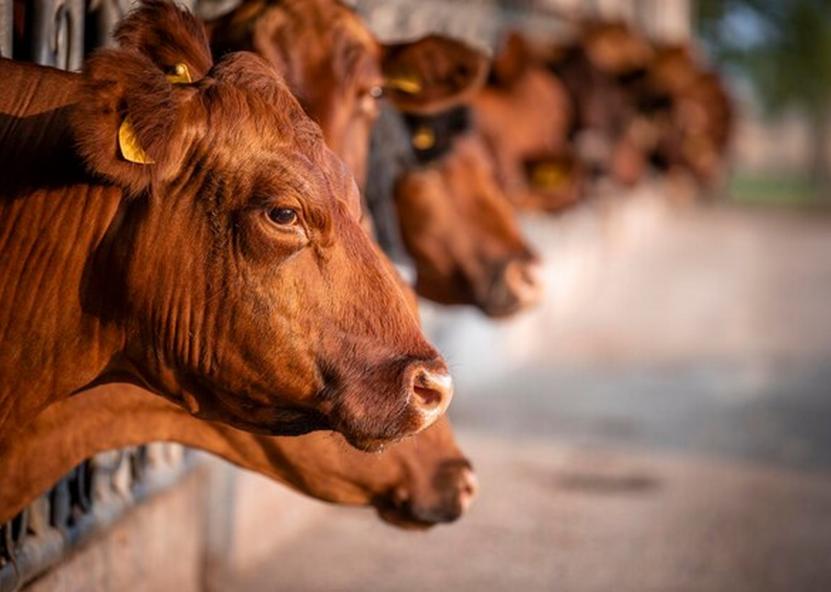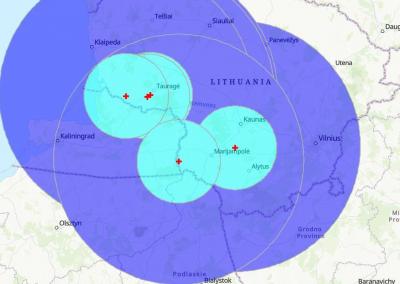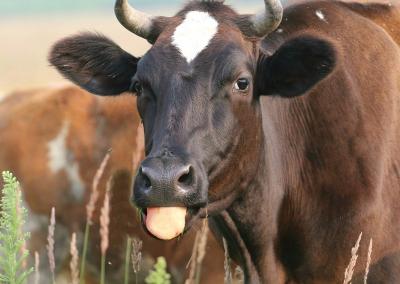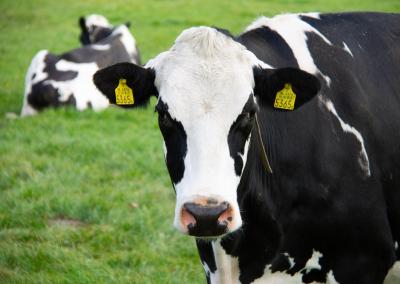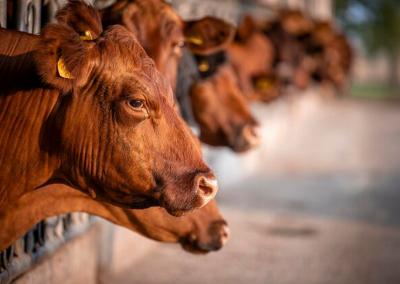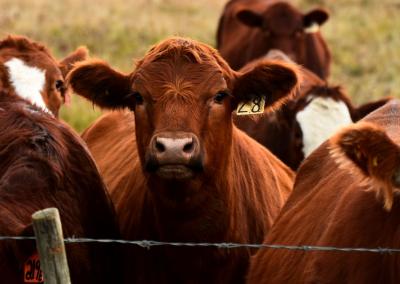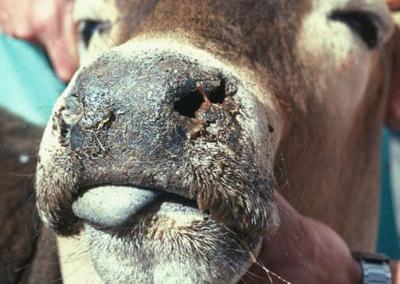Six cases of bluetongue confirmed on Lithuanian farms
The European Union Reference Laboratory has confirmed suspected cases of bluetongue (MLD) in cattle farms in Lithuania, according to the State Food and Veterinary Service (SVVT). Tests have shown that the causative agent of the outbreak belongs to MLL virus serotype 3.
In order to prevent the spread of the MLL virus, the Director of the VMVT has ordered the declaration of six outbreak sites in the country as of 13 October: cattle farms in the municipalities of Marijampolė, Pagėgiai, the districts of Prienai, Taurage, Vilkaviskis.
Restrictions on movement of animals in outbreak areas:
- Transfer of animals susceptible to MLL to other holding sites and transport of their genetic material products (semen, oocytes, embryos) is prohibited.
- Exception applies only to animals transported for slaughter, with the authorisation of the HMA.
- The ban will only be lifted after negative results of PCR tests (after 21 days of national sampling) confirming that the pathogen is no longer present in the area of the outbreak.
Requirements for farmers and preventive measures in outbreak areas:
- Keeping animals infected with FMD confined indoors until the ban is lifted by the VMVT;
- Use anti-mosquito measures (nets, repellents). Recommended chemicals for the farm are available at vmvt.lrv.lt.
- Ventilation in the housing of animals susceptible to FMD
- monitor the health status of the animals closely and report any changes or deaths immediately to the VMVT;
- removal of breeding sites during periods of cattle activity in order to reduce the risk of spreading the disease
„The bluetongue situation in Lithuania is under control. We are continuously working with colleagues in other countries that have experienced similar outbreaks, so that we can apply the most appropriate solutions in Lithuania. The global infectious disease situation remains dynamic and requires constant monitoring, especially as the cases of MLL in cattle herds in the country were asymptomatic. We urge farmers to be vigilant, to purchase and import only healthy animals responsibly, to monitor their health, and to react in a timely manner if they have even the slightest suspicions and to consult with veterinarians and the VMVT," says Vaidotas Kiudulas, the country's Chief Veterinarian.
On the movement of cattle to other EU Member States and non-EU countries
In order to export bovine animals to other EU Member States or non-EU countries for further rearing, it is necessary to comply with the requirements for the control of FMD set by the host country and to additionally undergo and obtain negative results of an FMD test (by PCR method). Samples for MLL testing are taken from the blood of the animals by a private veterinarian and the tests are carried out at the expense of the keepers of the animals at the National Institute for Food and Veterinary Risk Assessment in Vilnius. Samples must be collected at the premises where the animals are kept and must not be transported to ungulate collection centres until the results of the MLL tests are available.
In case of transport of animals for slaughter to other EU countries, the dispatching operator must inform the responsible authority at the place of destination 48 hours in advance.
Cattle may be transported within the territory of Lithuania without additional restrictions. The ban only applies to farms infected with MLD.
The HSE reminds that bluetongue is a viral disease which is not dangerous to humans. Cattle, goats, deer, camels, llamas and alpacas are the most commonly infected, but it is the infected sheep that are most seriously affected. Although cattle are more commonly infected, they do not always show signs of disease. Economic losses are due to mortality, reduced milk yield, weight, reduced production, reproductive losses and prolonged treatment of infected animals.
The MoHFW, in collaboration with the European Commission and national partners, continues epidemiological surveillance and implements additional control measures to prevent the spread of the disease.
This Wednesday, 15 October at 9 a.m. The FVO will organise a remote consultation for hauliers and social partners. The log-in link will be published on the OHIM website.



































































































